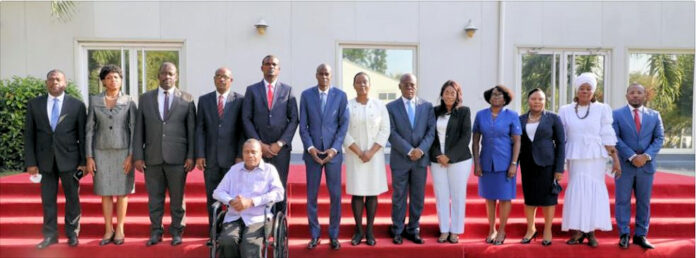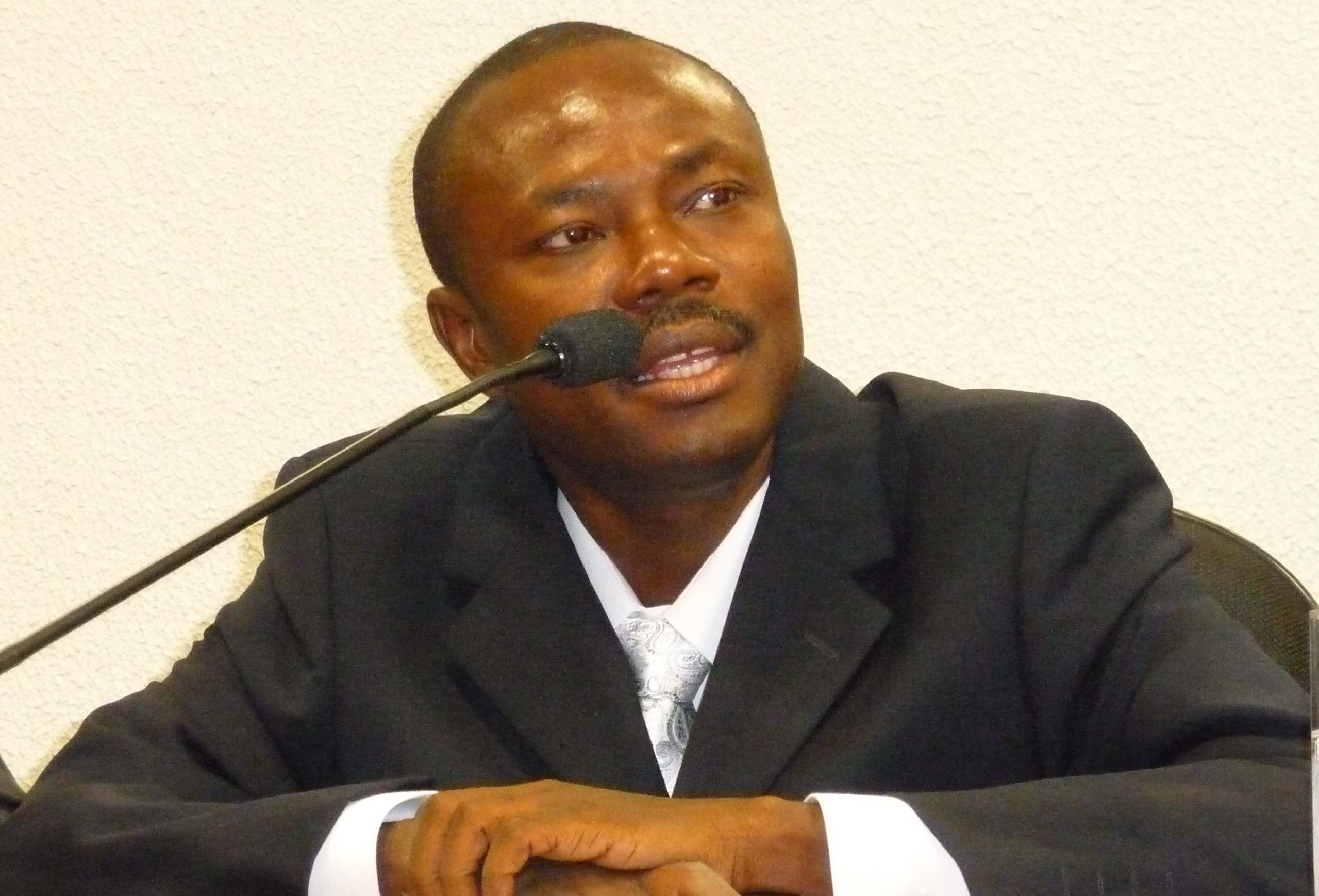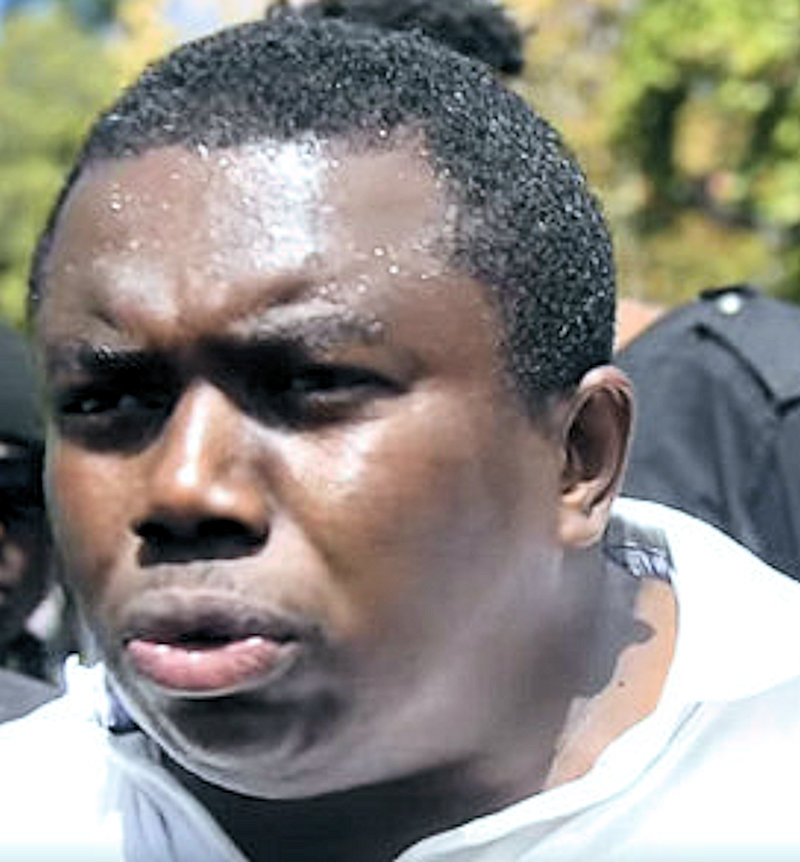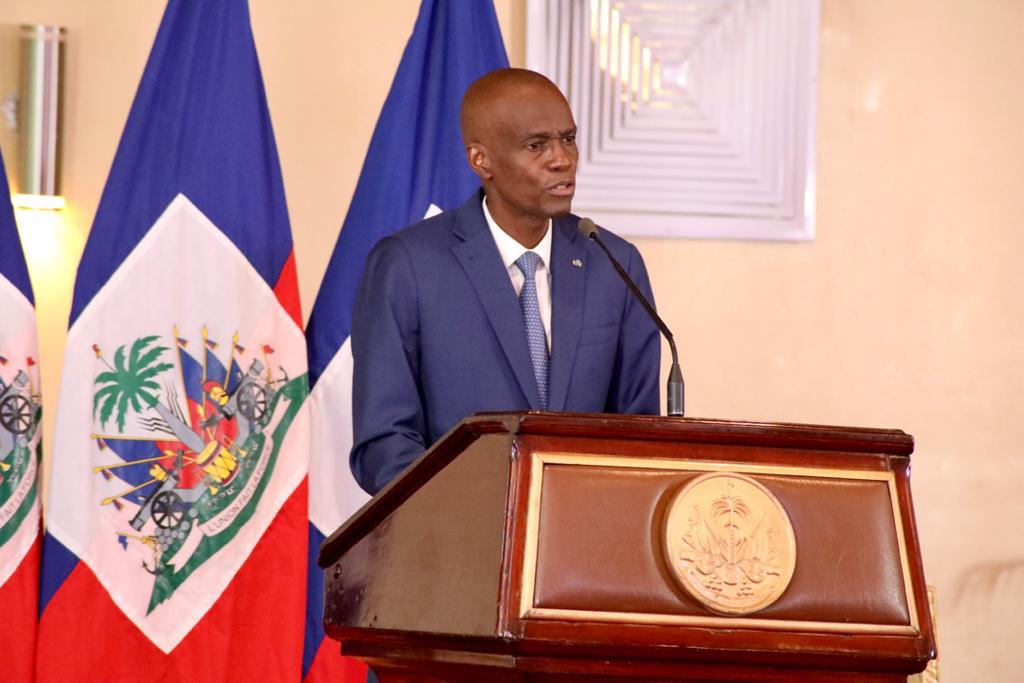
Haitian President Jovenel Moïse unveiled a new Provisional Electoral Council (CEP) on Sep. 18, despite Haiti’s traditional opposition vowing that they will not take part in any elections he presides over.
Instead, the opposition demands that Moïse step down 137 days from now (if not before), on Feb. 7, 2021, the end of his term according to an article in Haiti’s contradictory 1987 Constitution. Another article suggests that Moïse’s term ends Feb. 7, 2022.
According to the presidential decree which was published in the government’s journal of record, Le Moniteur, the nine-member CEP has the mission to organize a constitutional referendum to provide Haiti with a new constitution and to plan local, municipal, legislative, and presidential elections. Haiti currently has no functioning Parliament since January, and municipal posts have also expired. Moïse rules by decree.
Moïse’s new CEP was rolled out two days after a senior State Department official said that “all Haitians have a responsibility to deal with” the lack of a legislature and to hold elections. The official said that Moïse “has the opportunity to [put in place an electoral council] by his rule by decree, and we believe he should.”

The senior U.S. State Department official then went on to threaten Haiti’s opposition to fall into line. “I’m a little bit tired of … every opposition party in Haiti saying, ‘Well, I won’t appoint my person,’ or ‘We won’t have an election,’ or ‘We won’t run in this until you meet all of my political demands.’ That’s not democracy,” he said. “And so we are quite insistent on this, and it’s going to start to have consequences for those who stand in the way of it.”
The indignation of Haitian opposition politicians was sharp and immediate.
“You impose the president of your liking, you impose your economic system on us, you have occupied us on two occasions [recently, in 1994 and 2004], and it is you who dictate our policies.” responded former Haitian senator and former presidential candidate Moïse Jean-Charles, the leader of the Dessalines’ Children party (Piti Desalin) in a Sep. 17 radio interview with Magik 9. “How can you proclaim your impatience today?”
It is Haitians who should be impatient with Washington, Jean-Charles said. “We are tired of your rigged elections, of your destruction of our production and our economy, of your unilateral decisions, of your interference in our internal affairs,” he said. “We are tired, and I hope that all the embassies [in Haiti] hear that this time we will take our fate in hand.”

André Michel, a leader of the Popular and Democratic Sector, the opposition’s largest and most active front, tweeted in Kreyòl that “Jovenel Moïse has set up an electoral council with nine members of the PHTK,” Moïse’s ruling Haitian Bald Headed Party. “We throw that decision in the garbage. With a large mobilization, the Democratic Sector will continue to stand with the people to uproot Jovenel Moïse and his lackey CEP before Feb. 7, 2021. The nation is going into a transition,” code for Moïse’s removal from office and the establishment of a consensus provisional government which would hold new elections. The Popular and Democratic Sector has issued a calendar of mobilizations up until Oct. 17, the anniversary of the 1806 death by ambush of Jean-Jacques Dessalines, Haiti’s founding father.
Max Mathurin, who headed the CEP from 2005 to 2007 and in 2014, stressed that elections held under the current poor conditions will only push the country into a deeper crisis and that it is impossible to hold free and fair elections under the current conditions.
The previous CEP resigned en masse in July, writing in its departure letter that “it seems essential to us to prioritize the dialogue between the main actors of power, of the opposition, and of civil society in order to reach an appropriate consensus.” Clearly, Moïse has chosen a different path.
The nine new CEP members are Louis Arlext Noël (Handicapped sector), Nadia Jules Amédée (Farmer/Cooperative sectors), Guylande Mésadieu (Human Rights sector), Antonio Détil (Youth sector), Patrick Numas (Union sector), Josette Massillon (Women’s Organizations), Rev. Guy Romélus (Reformed Cults), Marie Rosemène Joseph Pierre (Vodou sector), and, Espérancia César, representing, for the first time in a CEP, the Haitian Diaspora.

The mandate of the new CEP as laid out in Le Moniteur is “to organize a constitutional referendum in order to provide the country with a new Constitution, to organize local, municipal, legislative and presidential elections, and to organize the elections for all other vacant positions or positions which could become vacant pending the re-establishment of the Permanent Electoral Council.”
In his speech to inaugurate the new CEP at the National Palace on Sep. 22, Jovenel Moïse explicitly threatened the Haitian opposition, clearly feeling that Washington has his back. “Democracy cannot be promoted through intolerance, intimidation, and indiscriminate violence,” he said. “Attempting to attack citizens [i.e. the new CEP members] who demonstrate the will to put their skills and knowledge at the service of their country is reprehensible. I therefore ask the judicial authorities to take note of all inflammatory statements and public threats made against members of the Electoral Council on social networks, through the press, and others. It is unacceptable to condone such behavior in 2020.”
Tellingly, Haiti’s Supreme Court judges refused to swear in the new CEP members, as is required under Haiti’s Constitution. The Haitian Bar Federation (FBH) had sent them a letter the same day requesting that they shun the ceremony. Jovenel Moïse proceeded with it anyway.
“The U.S. Embassy has chosen to support the electoral council that Jovenel Moïse has put in place unconstitutionally without any agreement with the other forces in Haitian society,” André Michel tweeted on Sep. 21. “Today it’s clear that the U.S. Embassy is plotting with the PHTK against Haiti. It’s the people who must mobilize to uproot Jovenel Moïse from power.”









